COCCAGLIO, Italy – Egidio Cozzi, CEO of Bialetti Industrie, has no doubts: “Coffee prepared with Moka is the most democratic: with just 0.07 cents you can enjoy a cup with a three-cup Moka. And it also represents the cheapest and most eco-sustainable method out there: the exhausted powder is thrown into the waste and leaves no trace, it does not produce any scrap. There is also a great difference in cost with the capsules varying between 0.20 and 0.40”.
Bialetti is a democratic brand and one of the symbols of Italianness in the world, a social connector: this is how Cozzi presented the company for the 90th anniversary of the Moka, “There is at least one Moka in all Italian homes and not only there”. His presentation also describes Bialetti’s more general activity in the coffee sector: capsules, grains and coffee grounds.
The Bialetti universe
Creativity, talent, insight and resourcefulness – a combination capable of making a difference in countless fields. The history of Bialetti, a global coffee icon and symbol of Italian life, fits this description.

The Bialetti universe represents a unique experience in the world of coffee: with a history spanning more than a century, the company – founded in 1919 by the genius of Alfonso Bialetti – has over the decades increasingly consolidated its role as a leading player in the industry, thanks to the revolutionary and innovative approach that has always distinguished it.
The iconic Moka Express: a 90 years old product
In 1933, the iconic Moka Express was launched, a design destined to revolutionize forever the simple daily act of making coffee and which this year celebrates its 90th birthday. Displayed in the permanent collections of the MoMA in New York and the Triennale in Milan, the Moka continues to be a cult object, loved by a wide public, increasingly attentive to the environment and sustainability, as the numbers show: about 2 million Moka Express are sold worldwide in a year (40% Italy, 60% Abroad), data as at 12/31/2022.
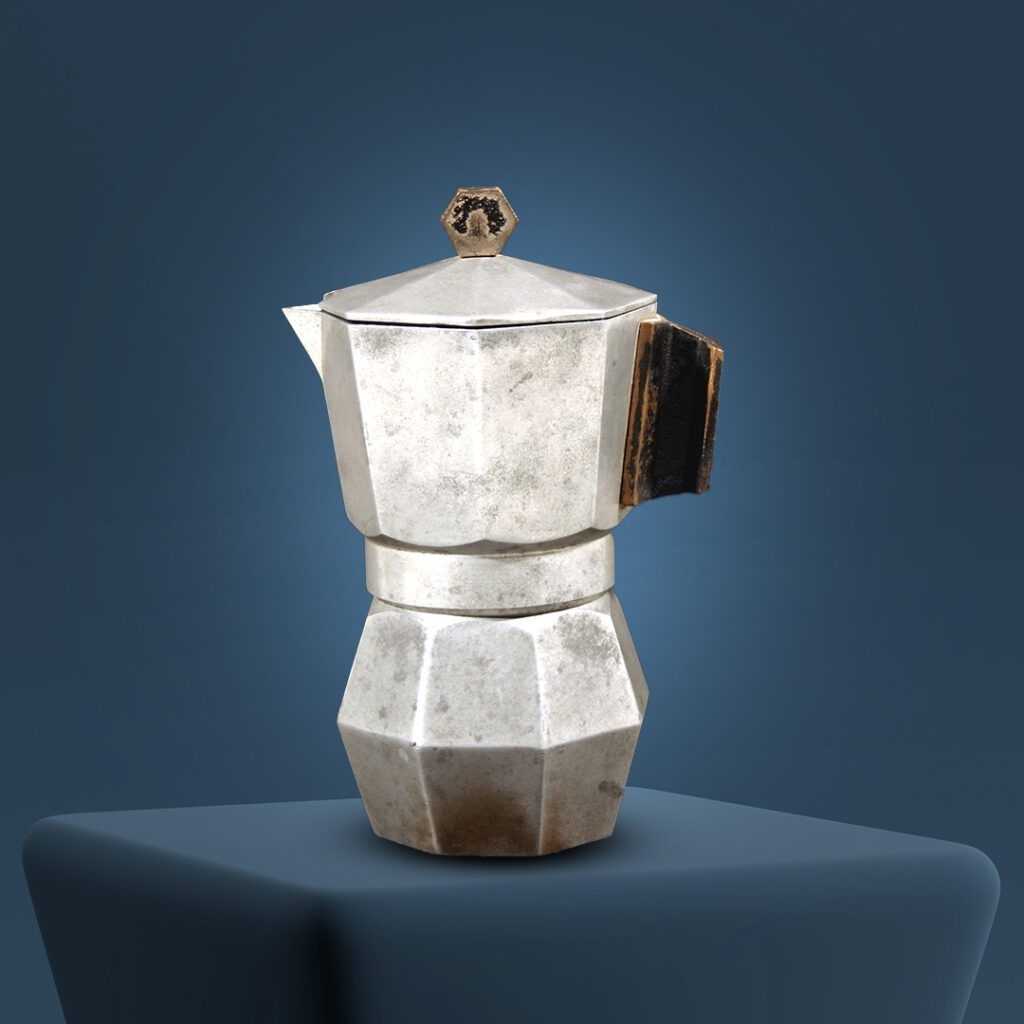
From the Moka Express and such a longstanding knowledge of the world of coffee, Bialetti’s path of evolution over the years has led toward an innovative development of the product range – with the expansion into espresso machine design and production – up to 2010, which brought the birth of the roasting business and the launch of the I Caffè d’Italia line of espresso machine capsules.
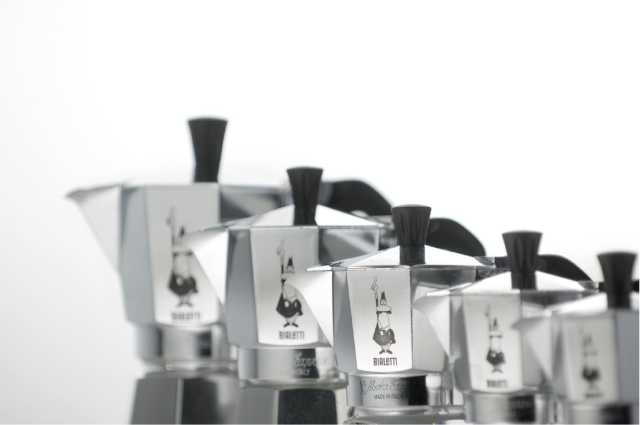
Coffee production represents a fundamental part of Bialetti’s history: thanks to extensive research and development, the company has succeeded in just a few years in fine-tuning a process by which it is able to implement all the roasting stages in-house: from the selection of beans to roasting, from grinding to degassing, right up to final packaging.

Bialetti coffee comes, therefore, from a specific and carefully studied method, the Bialetti Method, which allows us to obtain unique and unmistakable blends, capable of offering a true Italian experience in every cup. A coffee that stands out for its excellent quality and taste.
The year 2021 marked a new turning point: Bialetti introduced Perfetto Moka, the first ground coffee designed specifically for the Moka. The grinding is carefully designed to ensure flawless extraction, resulting in an excellent, full-bodied and creamy coffee.
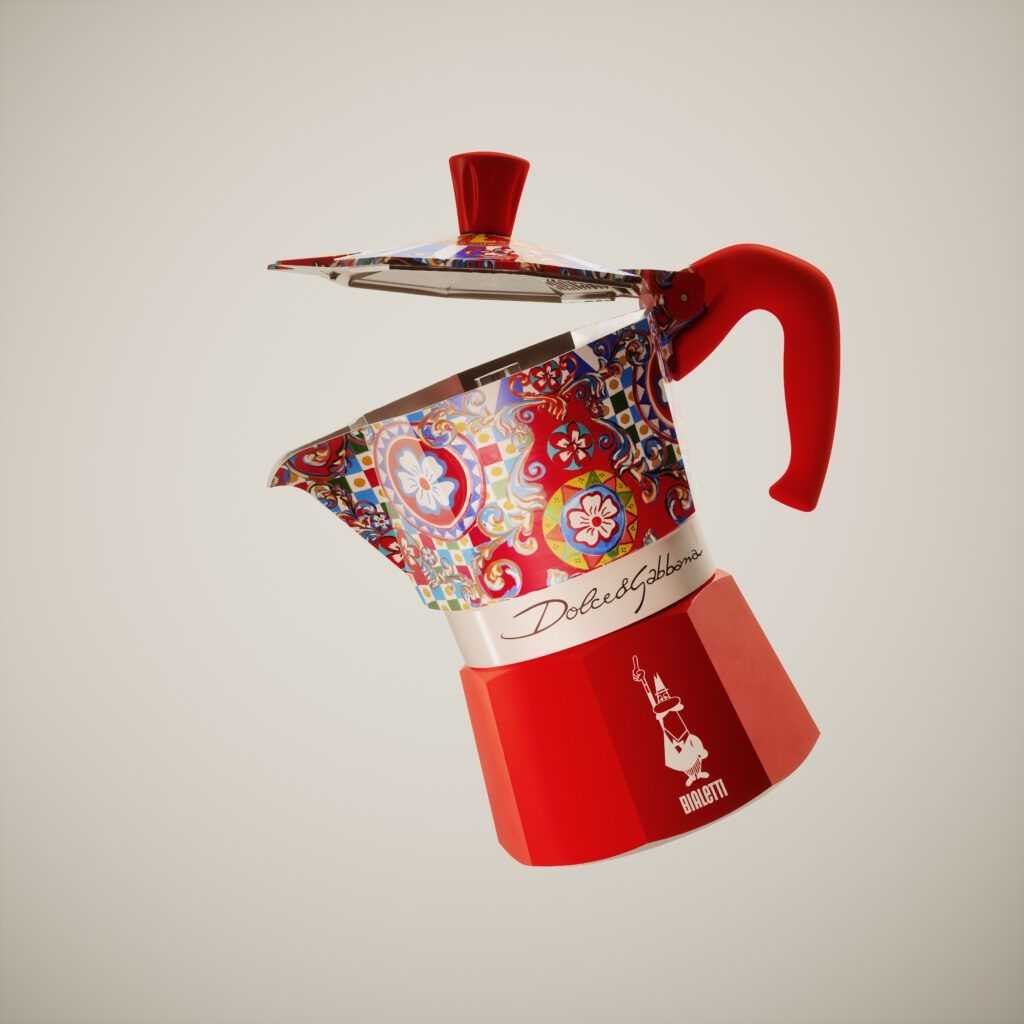
The Bialetti Group
The Bialetti Group, present on all 5 continents and operating in more than 90 countries around the world, is active in the production and marketing of houseware products and, in particular, all “Bialetti” branded products.
The Group, which is headed by Bialetti Industrie S.p.A, has its headquarters in Coccaglio in the province of Brescia, and consists of 2 production facilities, 1 branch for management of the retail network in Italy, and 6 sales branches located in France, Germany, Turkey, Japan, the United States and Australia, with a total of 1,026 employees, 668 of whom are in Italy and 358 abroad*.
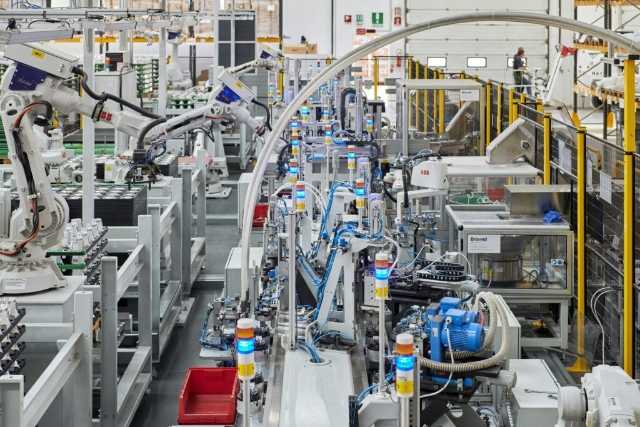
The retail branch, which employs 500 workers, operates a network of more than 100 stores throughout Italy and is now following a path of evolution that is both rooted in the brand’s heritage and looking to the challenges of the future, with the ambition of becoming a point of reference in the world of coffee.
The goal is to offer the public an immersive experience, revealing all the products in the item-packed Bialetti catalogue, from a brand that for more than 90 years has been starting the morning well for Italians and in fact created the ritual of Moka-made coffee, today famous all over the world.
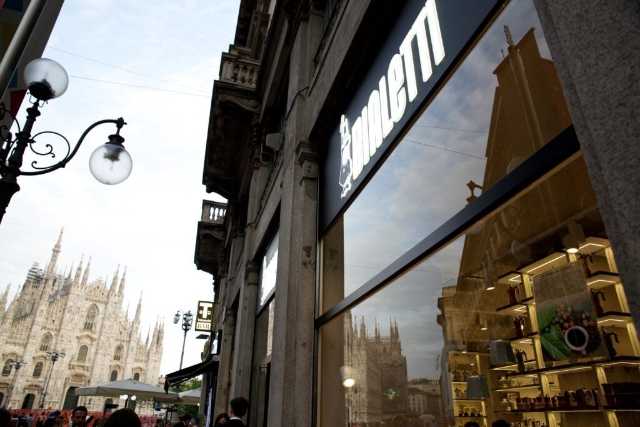
Among the drivers of retail network expansion, a key role is played by Bialetti franchising: a project that gives entrepreneurs and young investors the opportunity to become part of a well-established business. Bialetti launched the franchise project at the end of 2021 and to date has 15 stores assigned to franchisees, aiming to double this number by the end of 2024.
In FY 2022, the Group generated revenues of 152.9 million euro (65% Italy, 35% rest of the world), an increase of 3.9% compared to FY 2021**.
* Data taken from the 2022 Consolidated Non-Financial Statement (December 31, 2022)
** Data taken from Bialetti’s annual financial report (December 31, 2022)
The history of Bialetti
The founding of the company and invention of the Moka Express
• In 1919, Alfonso Bialetti opened a workshop in Crusinallo, a hamlet of Omegna (Verbania), for the manufacture of aluminum semi-finished products.
• In 1933, thanks to an ingenious idea, Alfonso Bialetti created the first and original Moka Express, an invention destined to revolutionize forever the way coffee is made at home. Bialetti’s goal was to bring coffee as good as that from the bar into the homes of Italians, while also creating an item that was simple and easy to use. Thus, he chose aluminum to make his creation: a material that is light, durable and (at the time) synonymous with modernity.
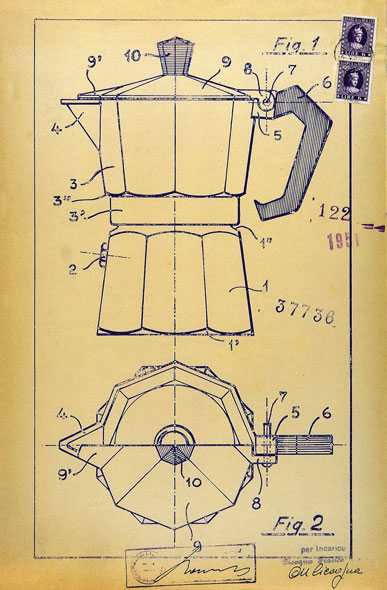
• The innovation of the Moka consists in the creation of a new operating mechanism which differed from existing models of coffee makers at that time – the Napoletana and the Milanese – which featured a system based on gravity. In the design of the Moka Express, Bialetti was inspired by the lisciveuse (a predecessor of the washing machine), effectively creating a small but efficient pressure system by which boiling water, rising from the boiler through the funnel filter, meets the ground coffee, blends with it and transports it to the upper chamber.
• The name was chosen in honor of the city of Mokha in Yemen, one of the earliest and most renowned coffee-producing areas, while the inspiration for the iconic octagonal shape of the Moka – which has remained virtually unchanged over the decades – is said to have been the silhouette of Alfonso’s own wife: the head, broad shoulders, narrow waist, an arm at the hip, and a pleated skirt…
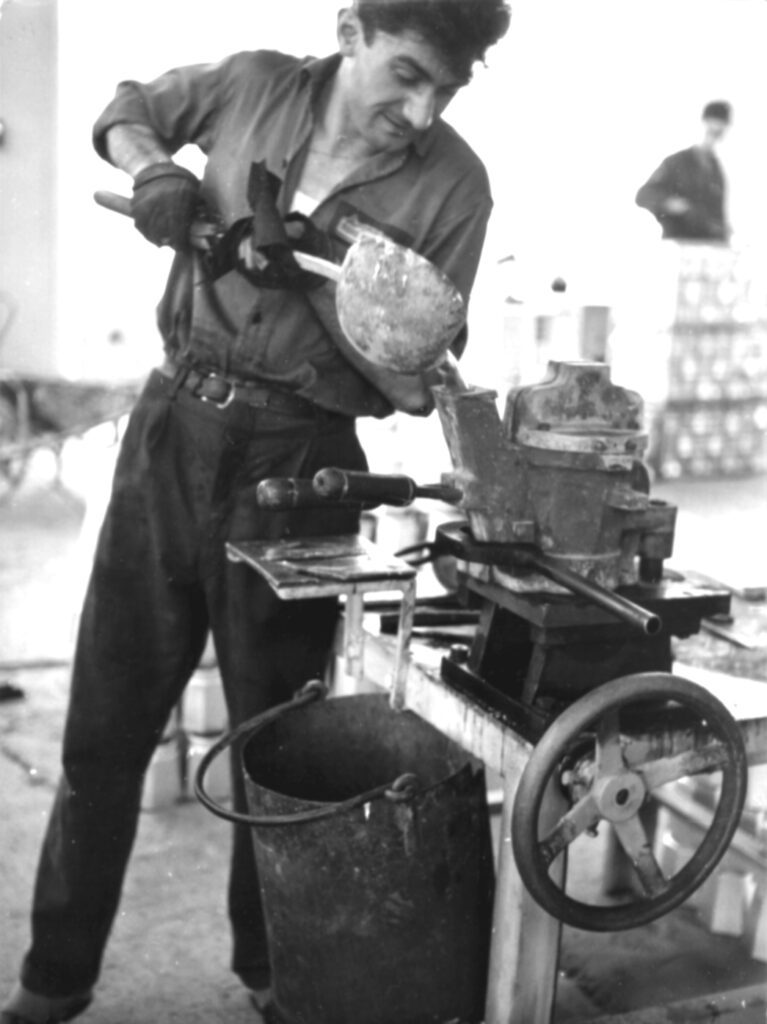
• Dating back to the 1950s was the introduction on the Moka Express of the very famous Man with the moustache. Created by cartoonist Paul Campani and inspired by the figure of Renato Bialetti (Alfonso’s son), the Man with the moustache became a symbol of the company and was soon applied to all Bialetti products.
• Also starting in the 1950s, thanks to an avant-garde advertising strategy and a clever export plan, the Moka Express began to establish itself as an indispensable item in Italian homes and at the same time as a symbol of Made in Italy quality throughout the world.
• Today, 90 years after its conception, the Moka Express is now an undisputed icon of Italian cultural heritage. The invention is included in the permanent collections of the MoMA in New York and the Triennale Design Museum in Milan, as an object with which Bialetti wrote the history of the Italian coffee ritual.
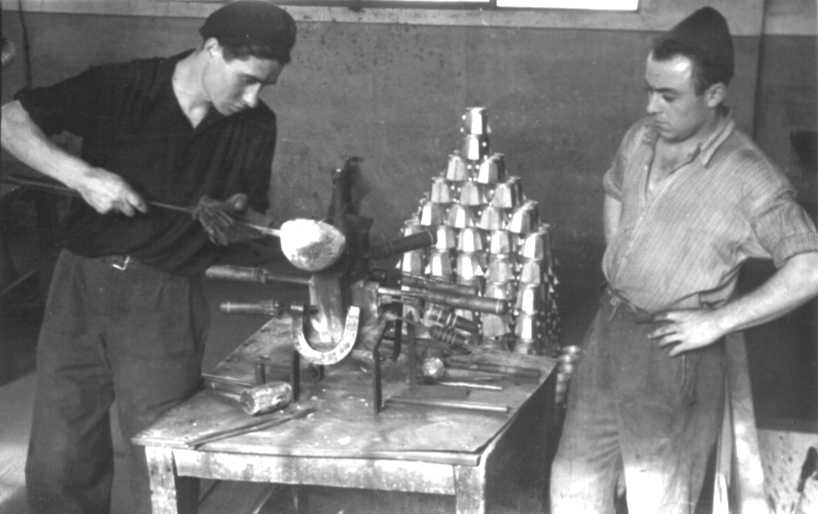
• The Moka has also established itself as one of the most sustainable ways of brewing coffee and is now finding renewed public love, precisely because of its sustainable nature. The Moka is made of aluminum – a material that can be recycled countless times – its use produces no waste (with the exception of compostable coffee grounds), and no detergents are needed to wash it, only warm water.
Developments – 1990s
• In 1993, Rondine, a leading manufacturer of non-stick cookware, acquired the entire capital of Alfonso Bialetti & C. A vocation for quality and a constant drive for innovation represented the common elements of the two companies, and the premises that prompted Francesco Ranzoni, founder of Rondine and current Chairman of the Bialetti Group, to proceed with the acquisition.
• About five years later, Rondine and Alfonso Bialetti & C. merged and Bialetti Industrie was born, based in Coccaglio in the province of Brescia.


















